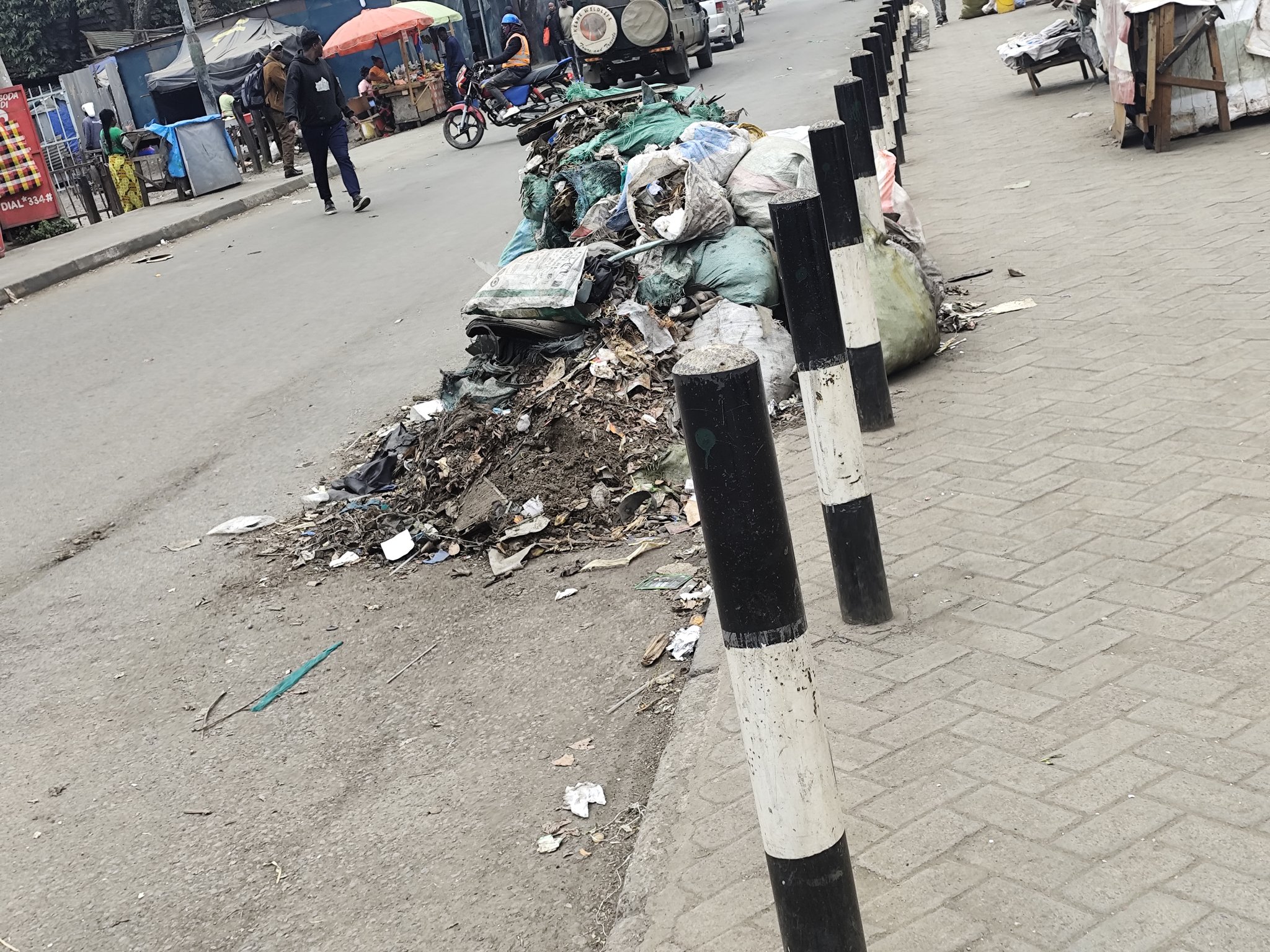

Garbage collection has emerged as one of the most costly recurrent expenditures
for county governments, with devolved units spending tens of millions of
shillings annually on the service.
The Controller of Budget has, however, flagged concerns over
how the funds are spent and accounted for, revealing that garbage collection
ranks among the highest non-salary costs in several counties, rivalling legal
fees and contracted services.
Margaret Nyakang’o’s County Governments Budget Implementation
Review Report indicates some counties spent close to Sh2 billion on garbage
collection, as key businesspersons in the sector cashed in on the service.
Nairobi county spent Sh1.8 billion on the service, despite
the administration making huge investments in the acquisition of garbage
collection trucks, refuse compactors and skip loaders.
Governor Johnson Sakaja has launched the equipment on various
occasions since taking office, with the latest being the flagging off of 24 new
refuse compactor trucks outside City Hall.
Sakaja said the trucks would be deployed immediately to boost garbage
collection across Nairobi and improve waste management.
Despite the expenditure and the investment, Nairobi residents
continue to complain about garbage, a problem the governor acknowledges is yet
to be solved.
He has attributed the challenge to huge debts left by the
now-defunct Nairobi Metropolitan Services, which has led to garbage collection
stalling in certain areas.
The amounts the governor cited further indicate the gold mine that is in trash, as contractors reportedly earned billions for the garbage collection
“Previously, garbage collection was more like sweeping dirt under the carpet without solving the real problem,” Sakaja said during a media interview last month.
“Before my administration came in, NMS had contracted many service providers, creating an impression that cleaning was being done. But they left us with a debt of Sh16 billion.
“Imagine, contractors were being paid Sh1.6 billion every month, yet the national government only sends us Sh1.7 billion. With that balance, what other services could we possibly provide?”
The garbage business is equally a hot potato, given the Sh357 million garbage tender is among the issues believed to have ended former Nairobi Governor Mike Sonko’s tenure at City Hall.
The report also showed Bungoma county spent Sh239 million, while in Siaya, Nyakang’o said Sh49.1 million was spent on garbage collection during the year. Comparatively, the county spent Sh29.8 million on legal fees, arbitration and compensation.
Tharaka Nithi reported spending Sh64.8 million on garbage collection, while Nakuru county, which hosts among the new cities in Kenya, consumed Sh97.62 million on the vote.
Kisumu county, which hosts the third-largest city in Kenya, only spent Sh4.83 million, while Mandera county reported to have used Sh58 million to collect its trash.
Similarly, Laikipia county spent a modest Sh3.4 million compared to Bomet’s Sh58 million. Other counties, such as Murang’a and Wajir, did not indicate amounts spent but reported costs on lorries and loaders for refuse collection.
The Controller of Budget noted that in several counties, garbage collection expenses were not always disclosed separately but instead bundled under “other operating expenses” alongside unrelated costs, such as contracted services, legal dues and professional fees.
This practice, the report warned, obscures the true scale of spending on waste management. The Controller of Budget recommended that county treasuries should fully disclose garbage collection costs separately in their financial reports, rather than grouping them under broad expense categories.
Nyakang’o also urged counties to improve transparency in contracting and procurement of garbage collection services to ensure accountability, as well as adopt sustainable waste management strategies, including recycling and private sector participation, to reduce recurrent costs and improve efficiency.
The report also urged counties to strengthen compliance with the Public Finance Management Act by ensuring that expenditures are accurately classified, making it possible for assemblies and oversight agencies to scrutinise spending.
Beyond the financial outlays, Nyakang’o pointed out that garbage collection continues to pose challenges for counties due to rising volumes of waste and limited resources for disposal.
In the 2023-24 report, the Auditor General raised serious concerns that garbage collection is becoming a major leakage point for public resources, with inflated costs, unsupported payments and weak accountability in how the funds are used.
In Nairobi, Nancy Gathungu reported that Nairobi paid out Sh1.2 billion for garbage collection and solid waste management contracts.
However, there was no evidence of competitive procurement, and in some cases, service providers were paid without proof of actual work done. The report noted that despite the huge spending, the county continued to face major waste management challenges, raising concerns of poor value for money.
In Mombasa, the county incurred Sh326 million on garbage collection, but the audit revealed duplicate payments to contractors and misclassification of waste management expenses under “other operating costs”.
The Auditor General questioned whether the services were delivered as claimed. In Kisumu, Sh211 million was spent on waste management, but the Auditor General found irregular payments where invoices were cleared without being supported by inspection reports.
Some contracts were extended beyond the legal procurement timelines without approval.
Nakuru allocated Sh97.6 million to garbage collection but part of this money was spent on leasing of trucks without proper documentation, and in some cases, overstated maintenance costs, the report said.
The Auditor General also queried Sh54 million spent on refuse collection in Machakos, noting that the county lacked records to show where and how the waste was disposed of.

















